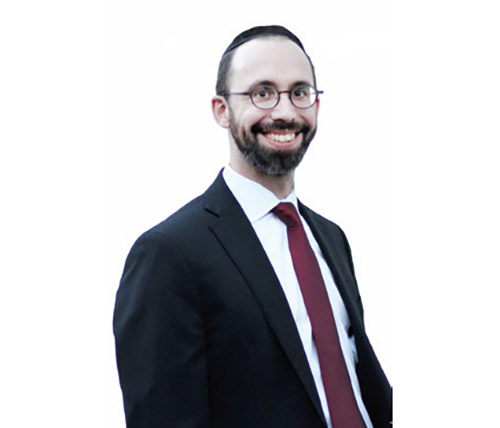
As we delight in the warmer weather that is finally arriving, we’re also feeling a lot of pressure this time of year. Pressure on our pocketbook! It’s registration time for all the yeshivos. It’s time to pay hefty deposits for our girls going away to seminary in Eretz Yisrael. It’s only a month away from the pricey holiday of Pesach and the budget keeps getting tighter. Oh yes, April 15 (Tax Day!) is coming close too…
Believe it or not, money was also a topic of concern back in the days when korbanos (sacrifices) were brought. In our parsha, Moshe is instructed to teach Aharon and his sons (the kohanim) the various laws of the bringing of the korbanos. The opening Rashi of Parshas Tzav notes that the word tzav—command—is used in the context where there is a need to encourage a person and his future generations to be diligent with a particular task. Rebbe Shimon explains that the concern about a slackened attitude with regard to the korban olah—burnt offering—is because there is a chisaron kis—a loss of money.
This Rashi is very difficult to understand. What is the loss of money? The instruction is for the kohanim to bring the korban olah, which is entirely consumed by burning on the mizbei’ach (altar). Although the kohanim do not get to eat any of the meat, since it is fully burned, it’s not a loss to the kohanim personally; they didn’t buy it! They are just doing their job by bringing it on the mizbei’ach.
The Baal Haturim explains that the command to Aharon and his sons is really directed at being diligent in studying of the laws of the korbanos and the korban olah. Additionally, the Gemara Menachos (110a) notes on this pasuk “Zos toras ha’olah,” this is the Torah of the korban olah. Why does the pasuk add the word “toras,” the Torah of the olah”? Simply, it is to teach us that when someone toils and studies the laws and concepts of the korban olah in the Torah, it is as if he brought a korban olah as a sacrifice.
I believe we can now explain the chisaron kis—the loss of money—with regard to a korban olah. Studying the Torah of the korban olah needs encouragement, particularly because we want it to be passed on to our children. Look around and you’ll see that your children are copying your actions, not your words. If you do something with enthusiasm, your children will embrace it enthusiastically!
Dedicating oneself and one’s children to Torah study… costs a lot of money! Sending a child to yeshiva, and a good, healthy Torah summer camp, comes with a price. Our bank accounts can deplete quickly. This is exactly what Hashem was telling Moshe. Aharon and his sons needed specific reminding to never see dedication to Torah study as a financial burden. This would communicate to the next generation that Torah study is just costly rather than a prized and treasured privilege.
Our perspective on the cost must be a positive one. The wording our sages use is very specific. The simple translation of the words chisaron kis is a loss of money, but the exact translation of these words is chisaron, lack, kis, pocket/wallet/purse. Our money is not being lost, it’s just a chisaron kis in our wallet. In truth, the money has been deposited in a different account! It’s like a 401k plan where an employer deducts a certain percentage of their employees’ monthly salary and deposits it directly into a 401k account. The employee brings home less money each month, but the money is not lost. It’s saved for him when he needs it later.
The Gemara Beitzah 15a tells us there are two expenses that are not deducted from one’s income. Money spent for children to learn Torah and Shabbos/Yom Tov expenses. For these, Hashem will repay us in some way.
Investment companies never guarantee financial security with regard to the principal. However, money spent on Torah study is the surest investment, as the principal is always guaranteed by Hashem. The profits are sure to happen if we follow the formula of Tzav. We need to be excited and enthusiastic about Torah study and feel it is the ultimate investment. If our approach shows enthusiasm, then it will carry over to our children!
By Rabbi Baruch Bodenheim
Rabbi Baruch Bodenheim is the associate rosh yeshiva of Passaic Torah Institute (PTI)/Yeshiva Ner Boruch. PTI has attracted people from all over northern New Jersey, including Teaneck, Bergenfield, Paramus, Rockaway and Fair Lawn. He initiated and continues to lead a multi-level Gemara learning program. Recently he has spread out beyond PTI to begin a weekly beis midrash program with in-depth chavrusa learning in Livingston and Springfield. This year he joined Heichal Hatorah in Teaneck as a Gemara iyun rebbe. His email is [email protected].













